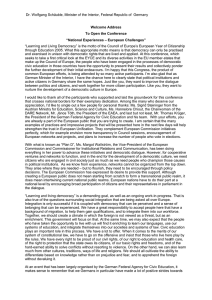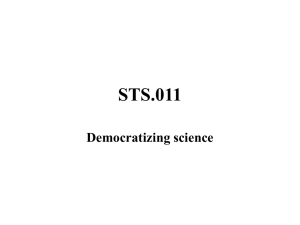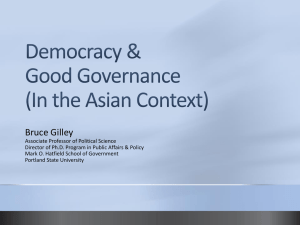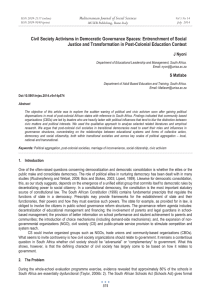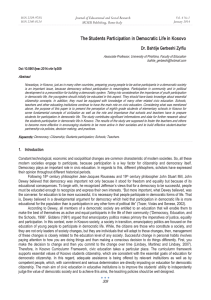International experiences: Olle Törnquist D the
advertisement
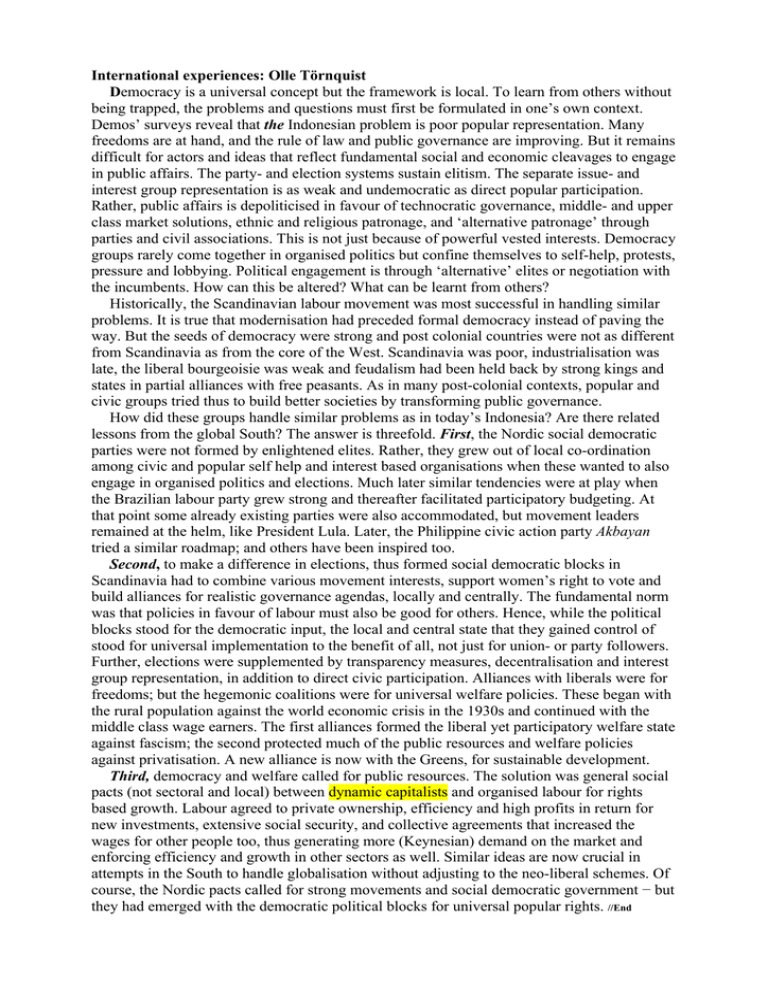
International experiences: Olle Törnquist Democracy is a universal concept but the framework is local. To learn from others without being trapped, the problems and questions must first be formulated in one’s own context. Demos’ surveys reveal that the Indonesian problem is poor popular representation. Many freedoms are at hand, and the rule of law and public governance are improving. But it remains difficult for actors and ideas that reflect fundamental social and economic cleavages to engage in public affairs. The party- and election systems sustain elitism. The separate issue- and interest group representation is as weak and undemocratic as direct popular participation. Rather, public affairs is depoliticised in favour of technocratic governance, middle- and upper class market solutions, ethnic and religious patronage, and ‘alternative patronage’ through parties and civil associations. This is not just because of powerful vested interests. Democracy groups rarely come together in organised politics but confine themselves to self-help, protests, pressure and lobbying. Political engagement is through ‘alternative’ elites or negotiation with the incumbents. How can this be altered? What can be learnt from others? Historically, the Scandinavian labour movement was most successful in handling similar problems. It is true that modernisation had preceded formal democracy instead of paving the way. But the seeds of democracy were strong and post colonial countries were not as different from Scandinavia as from the core of the West. Scandinavia was poor, industrialisation was late, the liberal bourgeoisie was weak and feudalism had been held back by strong kings and states in partial alliances with free peasants. As in many post-colonial contexts, popular and civic groups tried thus to build better societies by transforming public governance. How did these groups handle similar problems as in today’s Indonesia? Are there related lessons from the global South? The answer is threefold. First, the Nordic social democratic parties were not formed by enlightened elites. Rather, they grew out of local co-ordination among civic and popular self help and interest based organisations when these wanted to also engage in organised politics and elections. Much later similar tendencies were at play when the Brazilian labour party grew strong and thereafter facilitated participatory budgeting. At that point some already existing parties were also accommodated, but movement leaders remained at the helm, like President Lula. Later, the Philippine civic action party Akbayan tried a similar roadmap; and others have been inspired too. Second, to make a difference in elections, thus formed social democratic blocks in Scandinavia had to combine various movement interests, support women’s right to vote and build alliances for realistic governance agendas, locally and centrally. The fundamental norm was that policies in favour of labour must also be good for others. Hence, while the political blocks stood for the democratic input, the local and central state that they gained control of stood for universal implementation to the benefit of all, not just for union- or party followers. Further, elections were supplemented by transparency measures, decentralisation and interest group representation, in addition to direct civic participation. Alliances with liberals were for freedoms; but the hegemonic coalitions were for universal welfare policies. These began with the rural population against the world economic crisis in the 1930s and continued with the middle class wage earners. The first alliances formed the liberal yet participatory welfare state against fascism; the second protected much of the public resources and welfare policies against privatisation. A new alliance is now with the Greens, for sustainable development. Third, democracy and welfare called for public resources. The solution was general social pacts (not sectoral and local) between dynamic capitalists and organised labour for rights based growth. Labour agreed to private ownership, efficiency and high profits in return for new investments, extensive social security, and collective agreements that increased the wages for other people too, thus generating more (Keynesian) demand on the market and enforcing efficiency and growth in other sectors as well. Similar ideas are now crucial in attempts in the South to handle globalisation without adjusting to the neo-liberal schemes. Of course, the Nordic pacts called for strong movements and social democratic government − but they had emerged with the democratic political blocks for universal popular rights. //End


